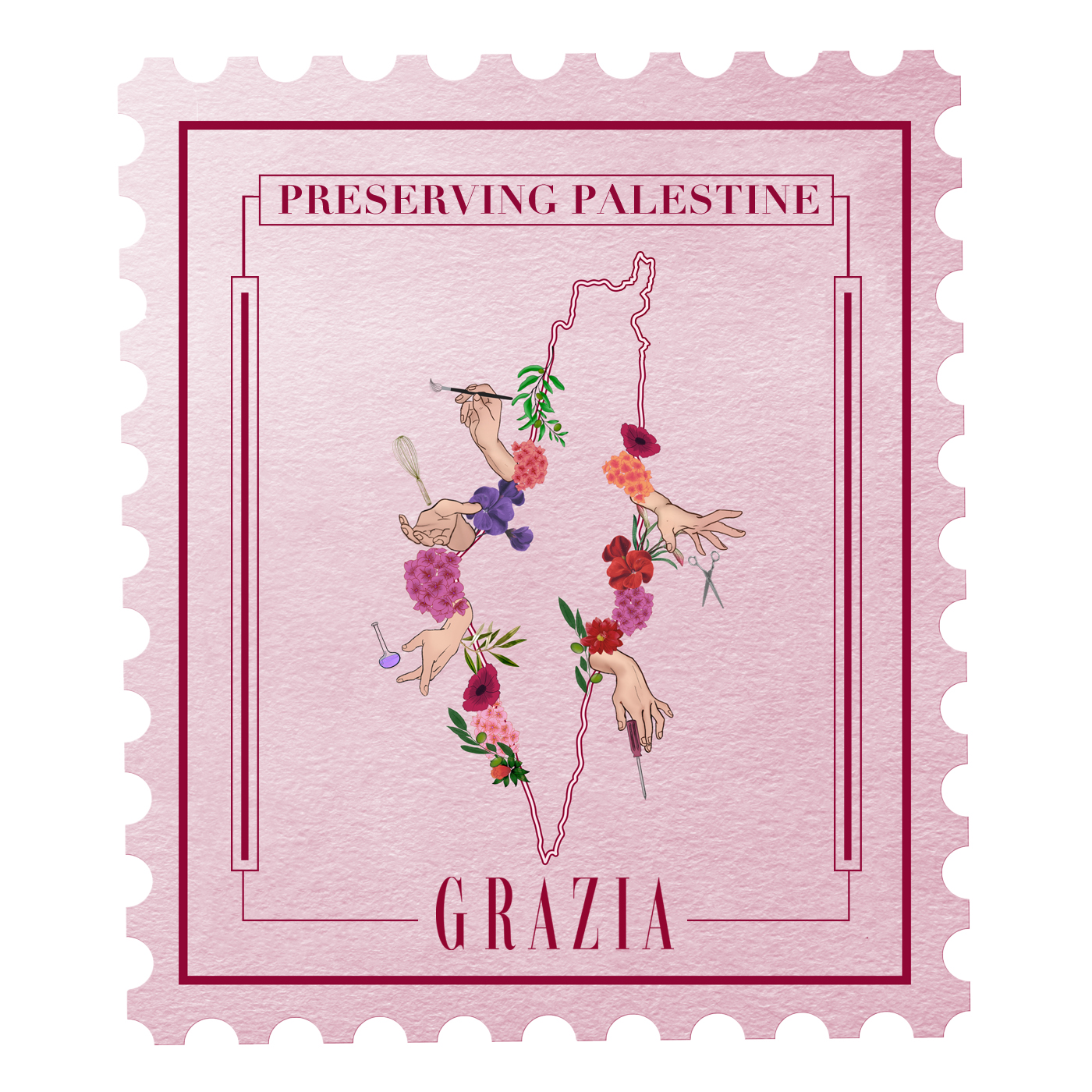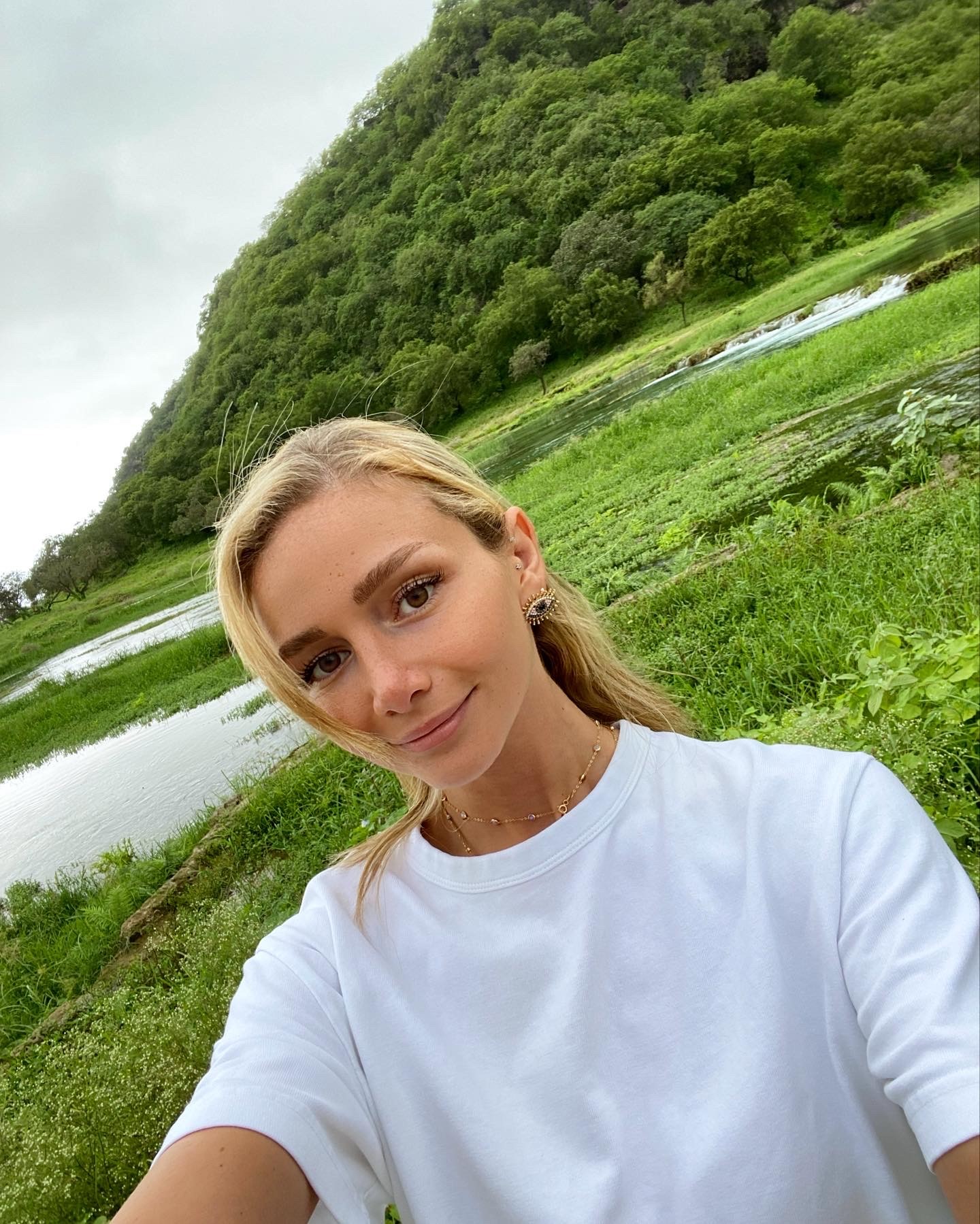
Listen and subscribe to Preserving Palestine: click here for Spotify and here for Apple Podcasts.
Once upon a time, I was born in Jerusalem, just as my parents were. I spent the last two decades of my life wandering between thousand year-old olive trees that were planted by my ancestors, and mountain tops that were touched by prophets. I would spend Fridays praying at the Dome of the Rock with my mother, and eating kunafeh in Nablus with my father. I journeyed to a local school five days a week where I learnt all about Palestine’s history. I would spend my evenings learning dabke, the centuries-old traditional folk dance, dressed in a beautiful red and black thobe embroidered with intricate Palestinian tatreez that my grandmother had hand-sewn for me.
I’d smell the freshly baked ka’ak bread in every street of the Old Town, and taste the delectable crunch of hand-made zaatar for breakfast every day. My mother would teach me how to make olive oil with my bare hands, vowing that it was the best remedy to cure any illness, whilst my father would tell me centuries-old myths about the hands who planted the trees that bore them. I would travel to Gaza to go fishing with my brother, and picked oranges in Jaffa with my sisters.
In my version of this fairy tale, when I close my eyes, I see myself in Palestine. And if this was all true, perhaps I wouldn’t be so attached to Palestine, because I would have tasted her olives, smelt her jasmines and saw her beauty. But alas, what is a fairy tale, if not a mere imagination of your wildest dreams, and the polar opposite of your reality?
Perhaps if it was my truth, I wouldn’t be a journalist at all. Maybe, I wouldn’t be motivated to write because I wouldn’t have anything worth writing about. Maybe, my family and I wouldn’t need to ask relatives to carry barrels of olive oil and freezer bags filled with ka’ak bread every time they visited us because we would’ve tasted them every day.
Maybe, if I had a state-issued document with my name and photo on it, which said ‘Palestine’ on it, my life would look a lot different, as I guarantee it would for many other people in the diaspora. Maybe if 12 year-old me had found the word ‘Palestine’ on every atlas and photo of the world map, I wouldn’t appreciate where I was from as much as I do today.
Officially, I may not be Palestinian. But a piece of paper won’t change our history, or change what runs through our blood. For I am Palestinian by blood, mind, soul and heart. And now, as I grow older, whilst I will never accept the torment that has been shed on My Land, I at least understand it. My Land is so yearned for, that men have battled over it for centuries. Books have been written about My Land’s purpose; stories have been told in My Land’s name, and yet, I am told that My Land does not exist.
The truth, is that I cannot see my parents’ homes and where they were raised. I cannot visit my family that remains in Palestine, and cannot attend neither their weddings and celebrations, nor their funerals. I can’t say my last goodbyes or my first hellos. I cannot go through my grandparents’ photo albums and live through my mother and father’s earliest memories. All that I am left with is an imagination, a mere idea of what it would be like if the last 74 years had never happened, if the Nakba had never occurred and if I wasn’t faced with baffled eyes every time I said where I was from. And that is how I’ve come to realise that fairy tales, folklore, fables and fiction aren’t merely bed time stories of magical and mythical lands, or princesses and pumpkin carriages told to children. We each have our own, and it just so happens that my Neverland takes place in a land that many say never existed.
Perhaps if those 74 years were blank – or, if I was born before them – perhaps if my parents had never left, perhaps if they didn’t have to seek a safer life, perhaps then my life would be different.
And yet I have come to realise, what is more important than my personal desires, is my responsibility to deliver this message to you. Every Palestinian has inherently taken on the role of a messenger, pleading to have our cases and stories heard. And whilst most will try to deafen us, or even deny our right to a fair trial, I ask you to help us Preserve Palestine.
For now, I’ll close my eyes again and dream of myself in Palestine, until my once upon a time leads to my happily ever after.









